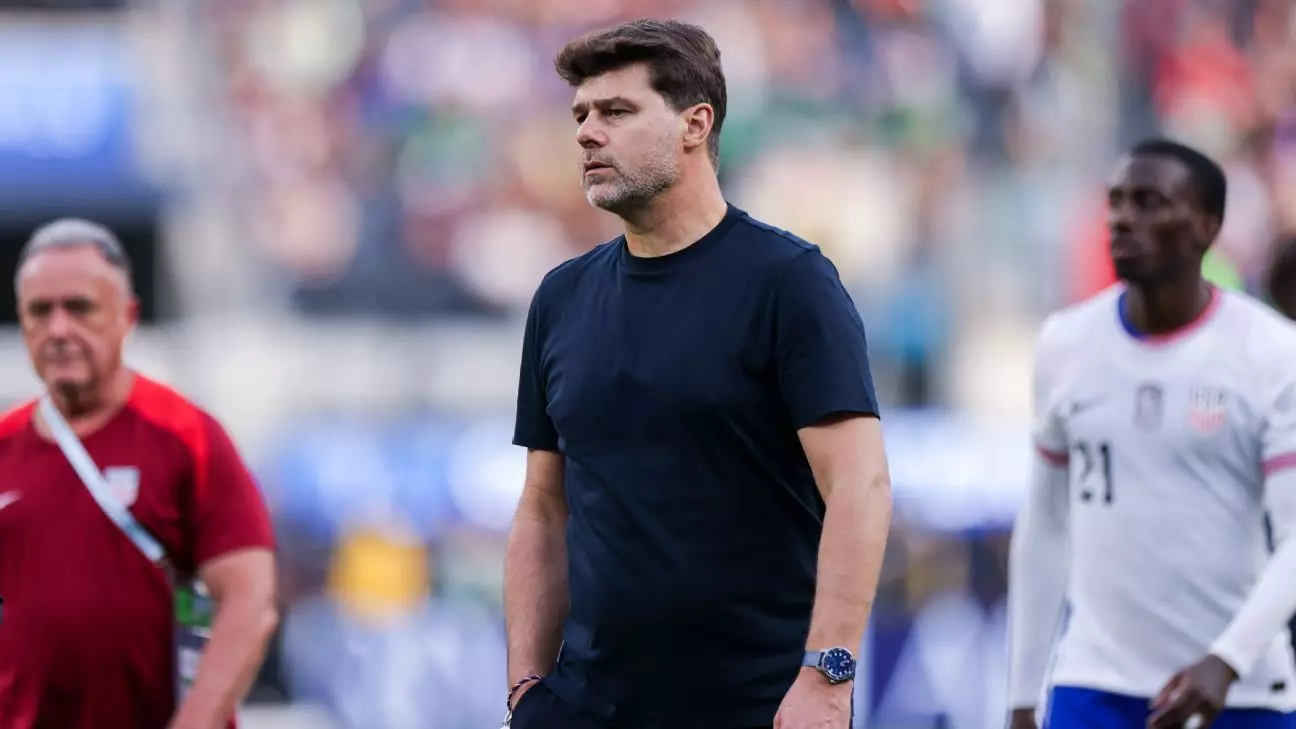The appointment of Mauricio Pochettino as the head coach of the U.S. Men’s National Team (USMNT) has stirred up a contentious dialogue among soccer analysts and former coaches alike. Bruce Arena, a well-respected figure in U.S. soccer circles and former USMNT head coach, has voiced his skepticism about bringing in a non-American to lead the national team. Arena asserts that without a deep understanding of American culture, Pochettino may struggle to grasp the idiosyncrasies that define the American soccer landscape. While it’s not uncommon for non-domestic coaches to helm national teams, particularly in a sport as globalized as soccer, the distinctiveness of the American context might present unique challenges that Pochettino has yet to navigate effectively.
Arena’s critique doesn’t just touch upon the typical concerns of soccer strategy or game management; it speaks to a broader, more nuanced perspective about the role of culture in sports. The emotional and psychological aspects of coaching a national team can transcend tactical knowledge. A coach like Pochettino may boast a decorated track record in club football, but the dynamic of motivating a team of players who come from various backgrounds, ethnicities, and professional environments requires a sensitivity and insight that go beyond game plans and training regimens.
Lessons from History: The Impact of Domestic Coaches
Historically, the success of other national teams often correlates with the familiarity of their coach with the local culture. Nations tend to flourish when their coaches share an intrinsic understanding of their societal influences, identity, and traditions. Take, for instance, the success of coaches within their own national frameworks—teams like Brazil and France have typically favored domestic leadership, creating a culture that resonates with their players both on and off the field. Arena’s assertion comes from this historical lens, casting doubt on whether Pochettino can cultivate the necessary rapport with players steeped in American soccer culture.
From Arena’s tenure and that of other domestic coaches, one can draw parallels in how a shared identity has often yielded greater success. Arena led the U.S. to the quarterfinals in the 2002 World Cup, a landmark achievement that stemmed from his understanding of the players’ mindset and the national emphasis on performance. This experience begs the question: can Pochettino’s foreign perspective genuinely align with the emotional and psychological elements tied to American soccer pride?
Mentality and Character: The Ongoing Struggle
Pochettino’s vocal concerns regarding the mentality and character of the team have only added fuel to the fire of Arena’s critiques. The performance in recent matches during the Concacaf Nations League Finals showcased a disheartening lack of cohesion and pride, elements that historically signify a team’s readiness to compete at a high level. Watching the U.S. capitulate to teams like Panama and Canada has left fans and analysts, including Arena, in disbelief.
These disappointing performances illuminate a pervasive issue that transcends mere technical skill; it speaks volumes about team cohesion and mental fortitude. Soccer is rarely just about physical abilities; rather, it’s an intricate dance of camaraderie, understanding, and collective motivation. If Pochettino struggles to connect with his players on a cultural level, the risk of alienation may hinder the team’s progress in formidable tournaments like the World Cup.
A Race Against Time: The 2026 World Cup Looms
As we edge closer to the monumental 2026 World Cup—set to be co-hosted by the U.S., Canada, and Mexico—the urgency for the USMNT to coalesce into a high-performing unit is palpable. Arena’s remarks emphasize the ticking clock; the players must gel quickly under Pochettino’s leadership to match their historical best performance. The reality is stark: success is not merely hinged on individual talent but also on the ability of the coach to forge an identity that resonates with the collective ambition and pride of American players.
Amidst this urgency, questions about Pochettino’s grasp of American soccer culture continue to linger, underscoring the inherent tension between his coaching pedigree and the distinct emotional landscape of the USMNT. The next year will be critical, not only in shaping the squad’s competitive edge but also in determining whether cultural context can be bridged through experience or if it will prove an insurmountable barrier to success on the world stage.

